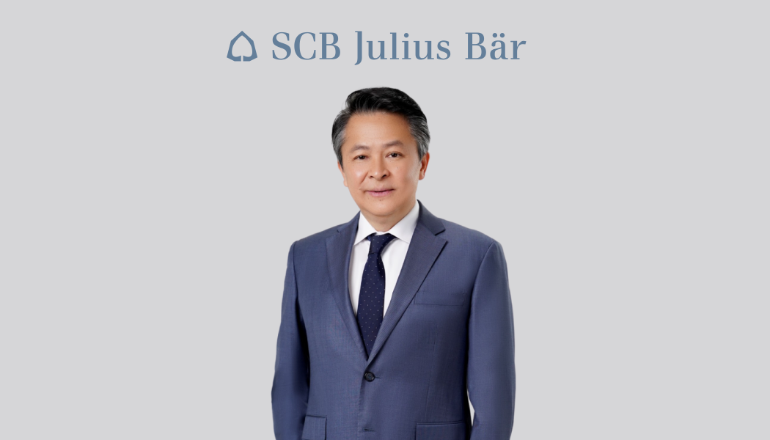The past five years have seen a number of ultra high net
worth, family office and even megawealth initiatives launched by
private banks across the world. Many of them have since been
revised or even scrapped as banks develop a better idea of the
requirements of these clients, reports Will Cain.
 Ultra
Ultra
high net worth and family office initiatives have given way to a
focus on segmentation at the lower end of the wealth spectrum
during the course of 2010 and 2011.
The focus on Asia’s emerging
affluent population has created a growing desire among private
banks to segment their affluent and lower end private banking
clients. At the same time, projects to court or improve service to
wealthy families and ultra high net worth clients – often launched
three, four or five years ago – are starting to be gradually
revised.
Known as megawealth, this segment
focuses on clients with net worth of $250m and above, although many
clients have a net worth that is substantially higher.
Citi’s launch of a megawealth
proposition in 2007 is a case in point. The service was replaced
last year when Citi launched its Global Office, headed by Catherine
Weir. The main difference between the two services is that
megawealth was primarily part of the private bank while Global
Family Office is a project which aims to provide access to the
entire bank.
How well do you really know your competitors?
Access the most comprehensive Company Profiles on the market, powered by GlobalData. Save hours of research. Gain competitive edge.

Thank you!
Your download email will arrive shortly
Not ready to buy yet? Download a free sample
We are confident about the unique quality of our Company Profiles. However, we want you to make the most beneficial decision for your business, so we offer a free sample that you can download by submitting the below form
By GlobalData“Megawealth was for the very
wealthiest clients around the region and we still deal with them,”
says Richard Straus, head of the Global Family Office, North Asia
region. “Basically it was really our private bank offering for
those clients. Global Family Office still provides the megaweatlh
offering for our clients but we’ve actually set up a network in
Citi which is not just the private bank, it’s bringing everything
in Citi to these clients.”
A team of 15 people work in the
Citi Global Family Office team in Asia, with other teams also
located in Europe, the Middle East and Africa, the US and Latin
America. Straus says the main role of the division is to provide a
“window” into the bank, allowing clients to access the individuals
and business lines within Citi that are most relevant to them,
reflecting their diverse requirements.
It also avoids duplication when
clients already have a number of relationships at the bank. For
example, a business owner might already work with the corporate
bank for their business’s trade finance requirements and use Citi’s
trust and custody services for their family office. The Global
Family Office staff work to ensure these needs are looked after and
to avoid duplication so that a client does not need to re-explain
their needs to different bankers working in different
divisions.
The evolution of the private
bank-based megawealth offering to the cross-bank global family
office service fits in with the wider industry shift towards a
one-bank type model already employed by UBS, Credit Suisse and
HSBC. Citi’s Global Family Office looks very much like Credit
Suisse’s Solution Partners division, which aims to recognise
synergies between the private bank and investment bank, although
Straus says Citi’s solution is a little different. The bank already
has an initiative called Client First, which is Citi’s version of
Solution Partners or One HSBC.
“I don’t want to talk about any
particular competitor, but they will bring their private bank and
their trust capabilities, or their private banking and investment
banking capabilities together.
“Citi is strong because whether
you’re talking about trust, global custody, investment banking,
commercial banking, capital markets, managed investments or risk
management – we are a significant player, not just in product areas
but across all of the geographies.”
The universal bank advantage in
dealing with the complex requirements of family office and
megawealth clients is borne out by the experience smaller banks
have had in rolling out their family office offerings. One European
private bank spoken to by Private Banker International,
that did not want to be named, admits it has had some
problems attracting these types of individuals and making their
family office division work internally.
One of the bank’s senior management
says that megawealthy clients are very product focused. If the bank
has the products they want, they have an entry point to set up a
meeting. If not, it’s hard to get access, making it difficult to
acquire new clients.
Universal banks like Citi have the
advantage of already having these relationships and are better
placed to respond when clients need new services. Smaller banks
need a specific product or advisory opening before they can start
building their family office business.
“From a bank perspective, it is not
easy to know what is the best approach,” says the senior banker.
“Maybe it would be a product approach, maybe it should be a more
holistic approach. It’s tricky to know.”
For the bank’s existing megawealth
clients, there are also internal issues to get over. As the
individuals are particularly high profile, different departments in
the bank have different views about what the best approach to take
with them is. Relationship managers may also be protective over the
clients which they have brought to the bank and typically deal
with.
This makes it more difficult for
specialist family office teams to operate effectively. The senior
banker remains optimistic the offering will be successful in the
longer term. He says that the unit, set up two or three years ago,
is now profitable, but admits the service requires more management
attention than originally envisaged.
“We are not in a hurry, not at all,” the European banker says.
“We don’t need a team of 20 people. It can be for quite a while be
a small team with the full support of management. So this can be a
very powerful team – it’s not a quantitative approach, it’s a
qualitative approach.”








